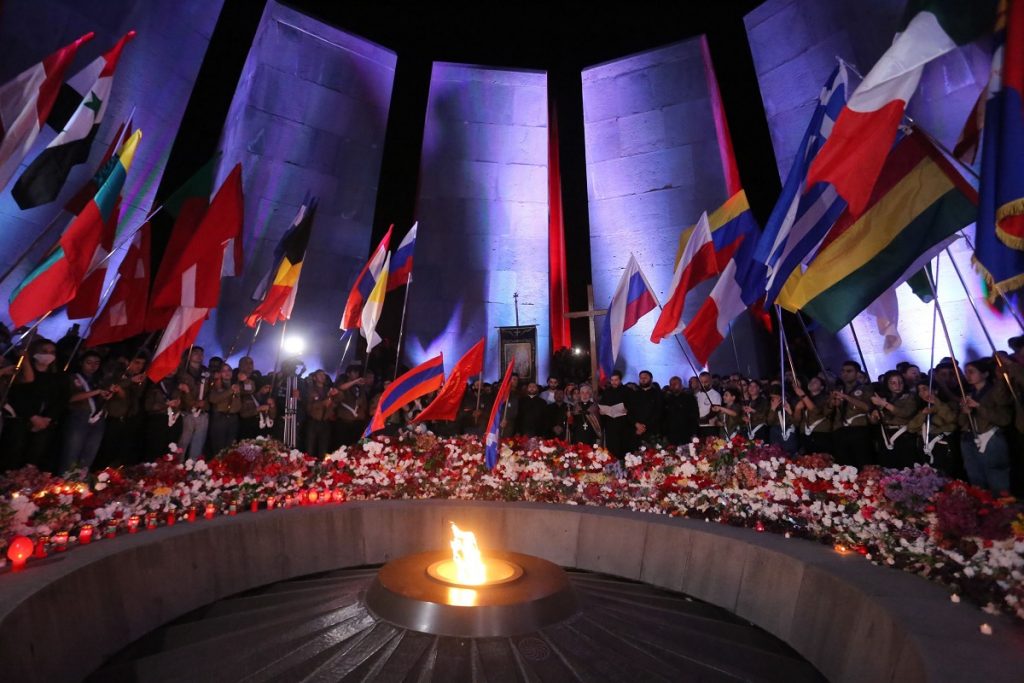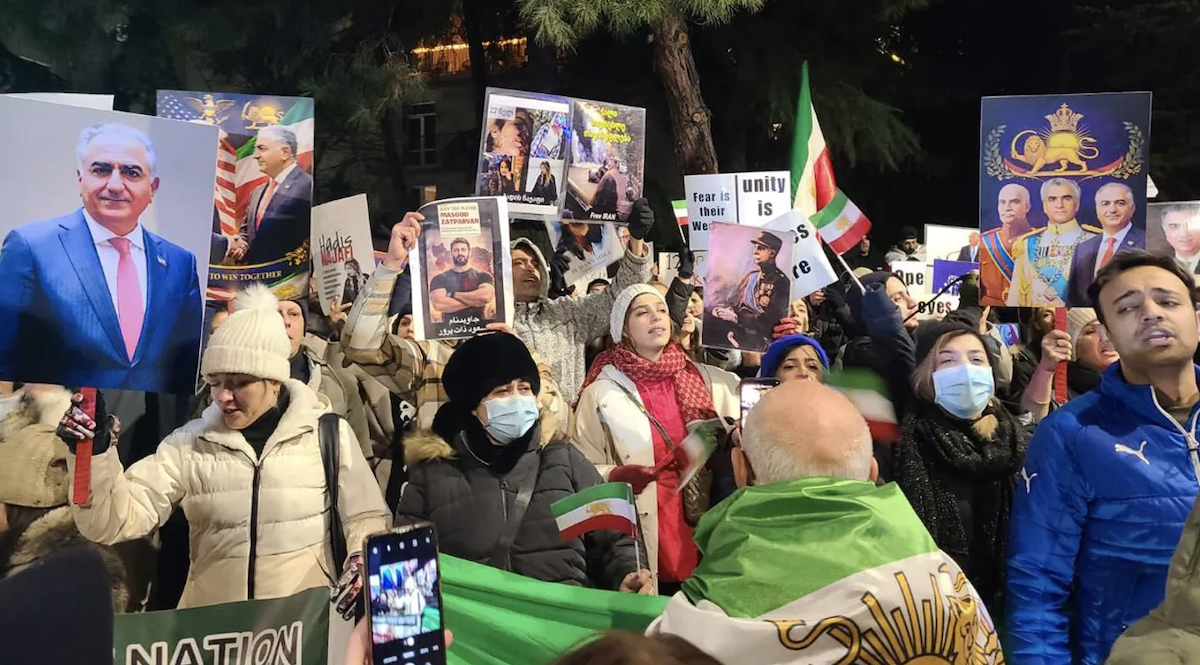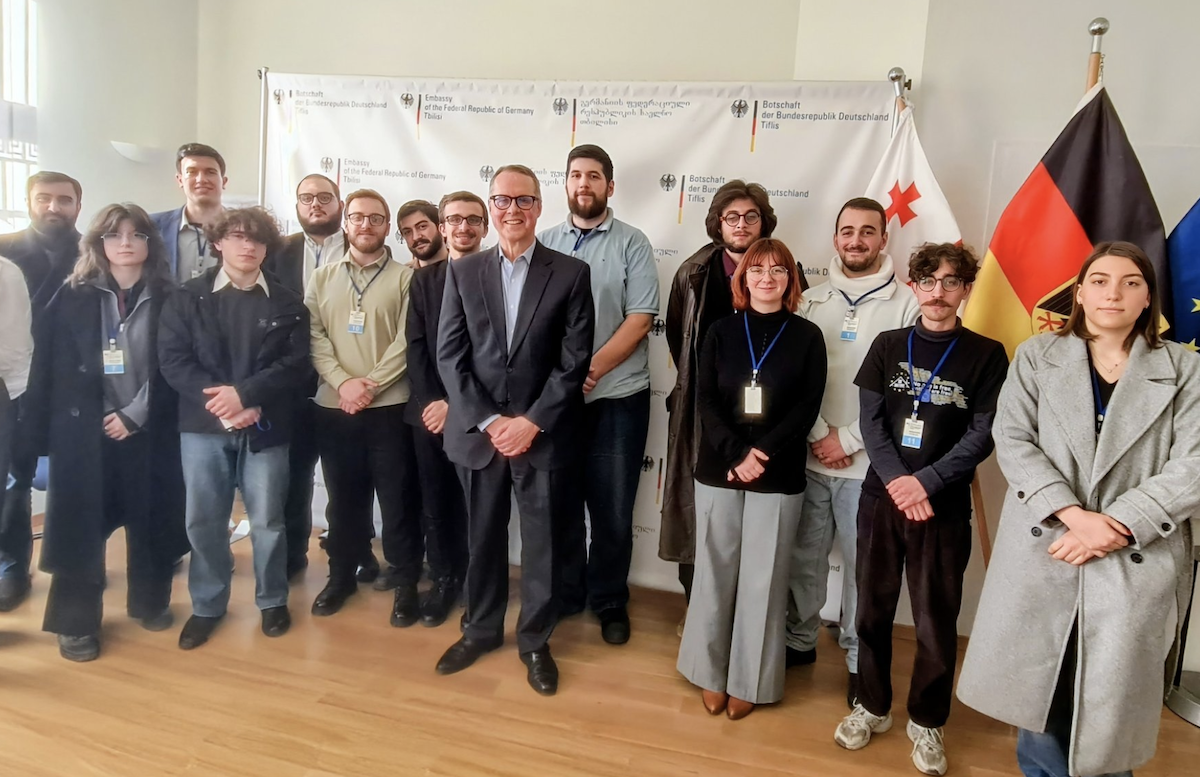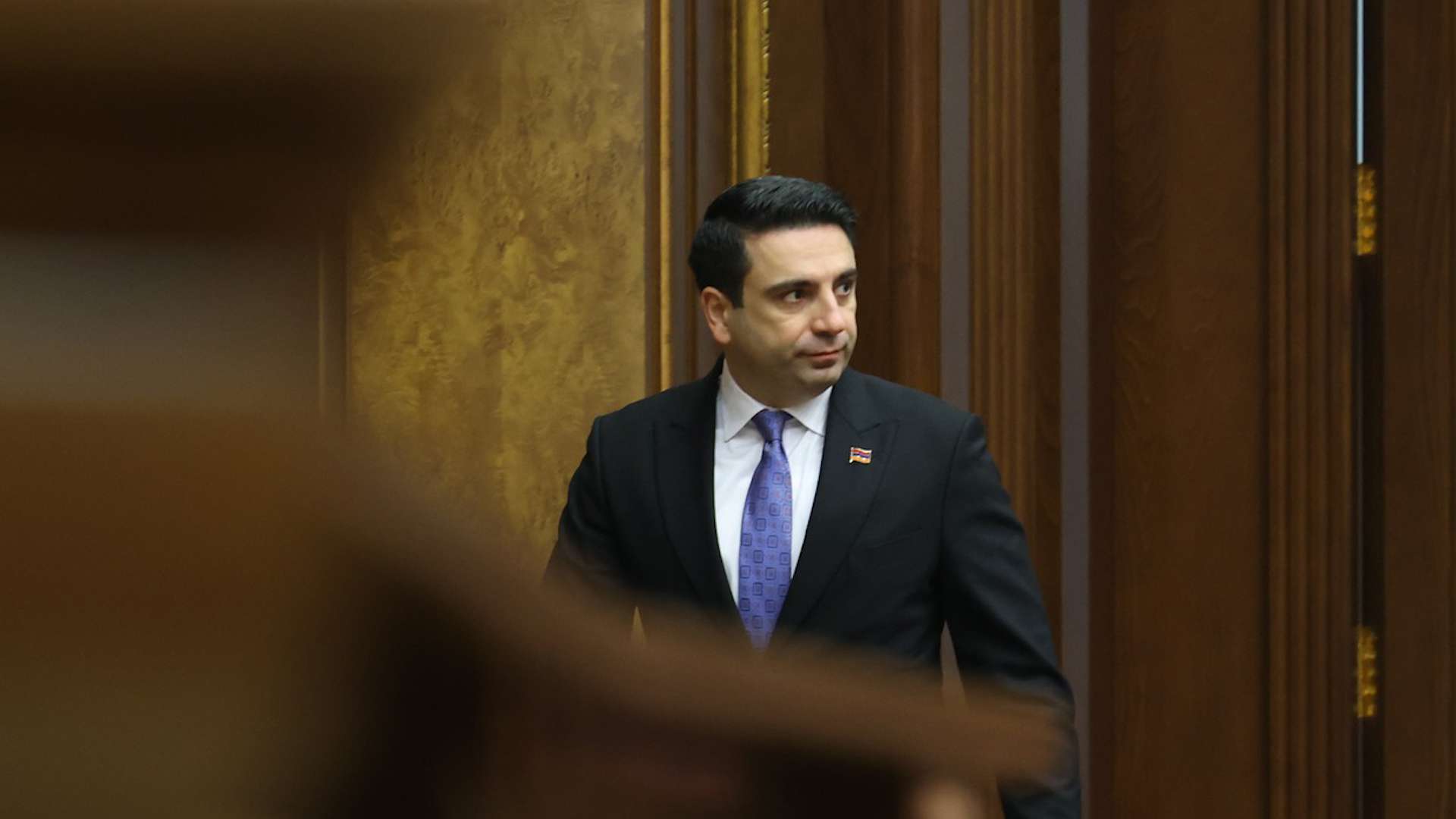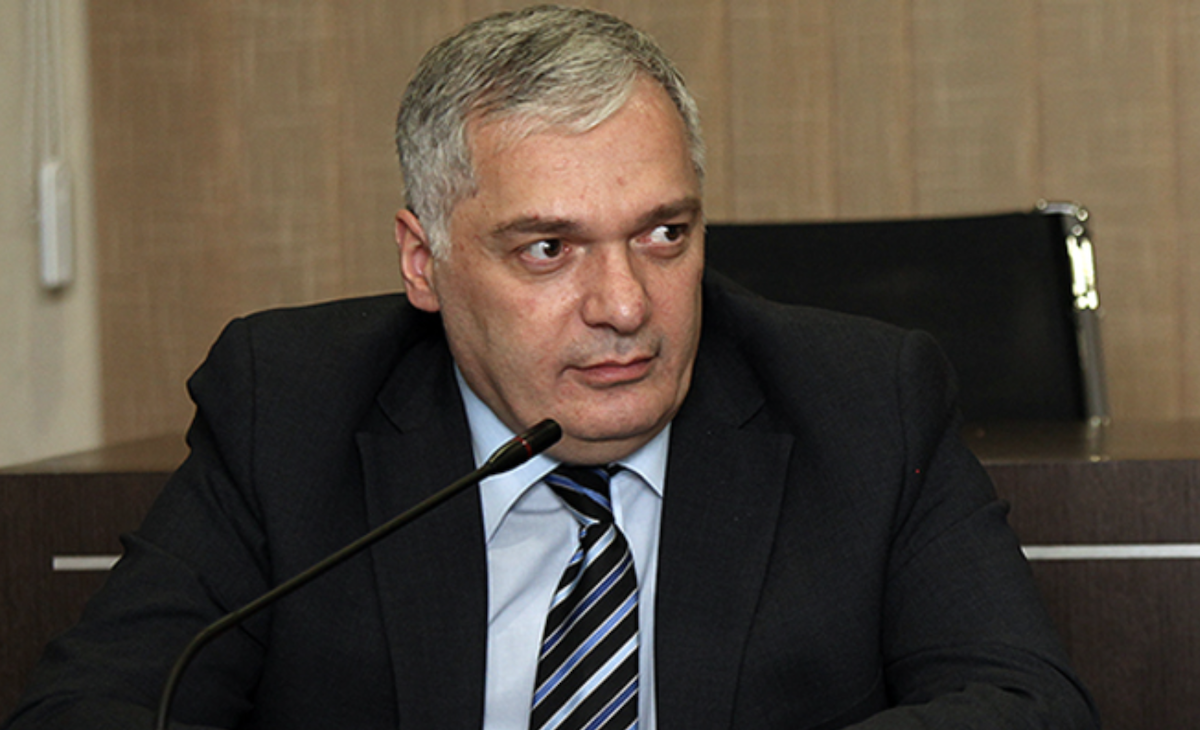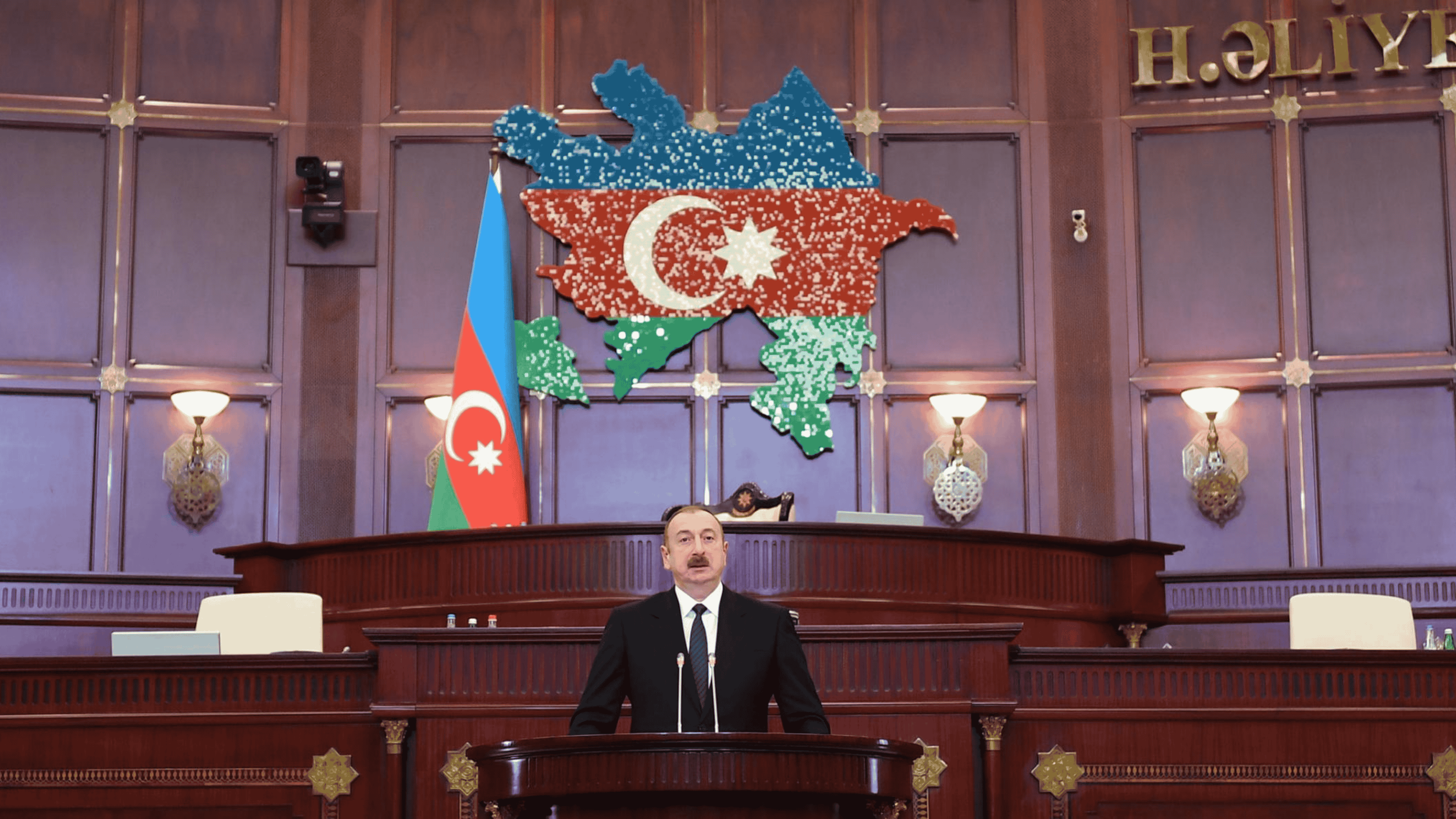US President Biden uses word 'genocide' while talking about killings of Armenians in Ottoman Turkey
US President Joe Biden has used the word “genocide” when referring to the massacres of Armenians in Ottoman Turkey at the beginning of the last century.
Until now, the White House has avoided the term, using expressions such as the ‘Mets Eghern’, which means “great massacre” in Armenian. This approach has been interpreted by unwillingness to spoil relations with Turkey over the issue.
Armenian Prime Minister Nikol Pashinyan has already thanked the US President, who used the word while delivering a statement on the occasion of the 106th anniversary of the symbolic start of the genocide.
The Armenian Genocide began in the Ottoman Empire in 1915. Before that, about two and a half million Armenians lived on the territory of the Ottoman Empire. As a result of the killings and mass deportations, more than half of them died.
The tragic events in the Ottoman Empire at the beginning of the last century have been recognized as genocide and condemned by influential international organizations, including the Council of Europe, the European Parliament, and the World Council of Churches. Among the countries that have recognized the Armenian genocide are Canada, Argentina, Switzerland, Austria, Italy, Russia, Belgium, France, Poland, Slovakia, Netherlands, Uruguay, Greece, Cyprus, Vatican, Germany, Lebanon and the USA.
Turkey categorically rejects such a formulation.
- Op-ed: US Senate resolution on Armenian genocide will not become law
- US Senate passes resolution recognizing Armenian Genocide
- Reaction to US House recognition of Armenian Genocide in Armenia, Turkey and the world
“Each year on this day, we remember the lives of all those who died in the Ottoman-era Armenian genocide and recommit ourselves to preventing such an atrocity from ever again occurring”, Biden said at the beginning of his message.
“Beginning on April 24, 1915, with the arrest of Armenian intellectuals and community leaders in Constantinople by Ottoman authorities, one and a half million Armenians were deported, massacred, or marched to their deaths in a campaign of extermination. We honor the victims of the Meds Yeghern so that the horrors of what happened are never lost to history. And we remember so that we remain ever-vigilant against the corrosive influence of hate in all its forms.”
The statement also says that most of those who survived were forced to seek new homes and new life around the world, including in the United States:
“Over the decades Armenian immigrants have enriched the United States in countless ways, but they have never forgotten the tragic history that brought so many of their ancestors to our shores. We honor their story. We see that pain. We affirm the history. We do this not to cast blame but to ensure that what happened is never repeated […] The American people honor all those Armenians who perished in the genocide that began 106 years ago today.
What preceded the statement
On the eve of April 24, Bloomberg reported that US President Joe Biden, during telephone conversations with Turkish leader Recep Tayyip Erdogan, announced his intention to recognize the Armenian genocide in the Ottoman Empire.
Even during the presidential election campaign, Joe Biden spoke directly about the need to recognize the genocide in the Ottoman Empire.
On Twitter a year ago, while still a candidate for the presidency of the United States, Biden wrote:
“Today we remember the atrocities the Armenian people faced during the Metz-Yegerna – the Armenian Genocide. If elected, I pledge to support the resolution recognizing the Armenian Genocide and will make universal human rights a top priority.”
Background in the USA
All of Joe Biden’s predecessors avoided using the term genocide when referring to the events of 1915 in the Ottoman Empire.
Presidents George W. Bush, Bill Clinton and George W. Bush avoided mentioning the word “genocide” given Turkey’s position.
In October 2007, the US Congress International Affairs Commission approved a resolution recognizing the genocide of the Armenian people. However, a few hours before the vote on the resolution, George W. Bush recommended that Congress not adopt it.
“We all deeply regret the tragic suffering of the Armenian people that began in 1915, but this resolution is not the correct response to the history-related massacres and would do enormous damage to our relationship with a key NATO ally and in the global war on terror” said then Bush Jr.
Despite the promise to recognize the genocide even before his first term, Obama instead introduced the Armenian words “Mets Yeghern” into circulation:
“Metz-Yeghern is one of the destructive chapters in the history of the Armenian people, and we must keep this memory alive as a sign of respect for the memory of the victims and in order to avoid the horrific mistakes of the past.”
Obama was replaced by Trump, who was the only president in the past 30 years to not promise any sort of recognition to the Armenian community.
Ronald Reagan was the only American president to mention the Armenian genocide only once in his written statement on the Holocaust.
However, the American parliament has repeatedly condemned the events of the turn of the century in Turkey.
The first resolution condemning the Armenian genocide was adopted by the Congress back in 1975, after the Turkish invasion of Cyprus.
In 2019, the House of Representatives and Senate passed resolutions recognizing the Armenian genocide. Then in America they were worried that Ankara was buying S-400 anti-aircraft missile systems from Russia.
But in the end, the administration of US President Donald Trump rejected Resolution # 150, adopted by the Senate on December 12, recognizing the Armenian genocide during the First World War in the Ottoman Empire.
The State Department said that “the position of the US administration is unchanged,” and that the historical events of 1915 continue to be viewed precisely as “mass killings.”
Turkey’s reaction
Armenia, more than two dozen countries and international organizations officially recognize the events of 1915 as genocide. Turkey categorically rejects such a formulation.
Regarding the recognition of the genocide by the United States, Turkey has repeatedly stated that this will lead to a deterioration in relations between the two countries. The last time on April 20, in an interview with the Habertürk TV channel, Turkish Foreign Minister Mevlut Cavusoglu noted that the US presidents had repeatedly promised to recognize the Armenian genocide before the elections, but did not do so after their victory.
Commenting on the possible intention of Biden to take a historic step, the head of Turkish diplomacy said that “if America wants to further worsen relations, then the choice is theirs.”
Moreover, Turkish President Recep Tayyip Erdogan said that in response to the recognition of the Armenian genocide, Ankara would recognize the American Indian genocide.
Immediately after US President Joe Biden officially recognized the Armenian Genocide, Mevlut Cavusoglu stated that words cannot change or rewrite history:
“We cannot learn our story from anyone. Political opportunism is the greatest betrayal of peace and justice.”
Armenian PM thanks Biden
Nikol Pashinyan on his Facebook page said that he had sent a letter to Joe Biden, in which he noted that Armenians around the world were very enthusiastic about the official recognition and condemnation of the Armenian Genocide in the Ottoman Empire by the US President.
According to the prime minister, this is a step towards the triumph of truth and historical justice and invaluable support to the descendants of the victims of the Genocide:
“I would also like to especially note the adoption by both chambers of the US Congress in 2019 of the resolutions recognizing the Armenian genocide and state that with your message the process of recognizing the US genocide has achieved its goal.”
The recognition of the genocide, according to the prime minister, is important not only from the point of view of respecting the memory of 1.5 million victims, but also in order to prevent new crimes.
